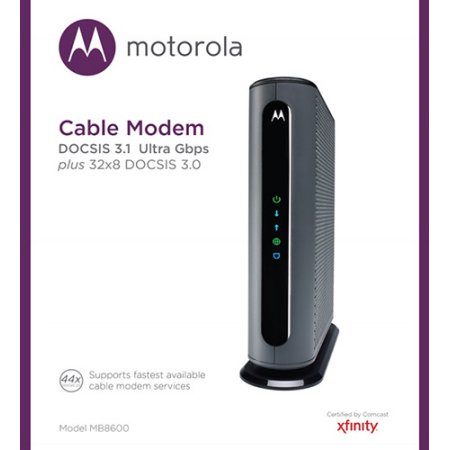 In one of the largest media consolidation acquisitions in history, Sinclair Broadcast Group has agreed to buy Tribune Media and its 42 TV stations in a $3.9 billion deal.
In one of the largest media consolidation acquisitions in history, Sinclair Broadcast Group has agreed to buy Tribune Media and its 42 TV stations in a $3.9 billion deal.
The transaction, expected to win easy approval by the Republican-dominated Federal Communications Commission, will virtually guarantee cable and satellite TV subscribers will pay significantly higher prices to watch Sinclair’s local television stations covering more than 70% of the United States.
Sinclair helped lay the foundation for winning approval of the transaction in GOP-dominated D.C. by hiring former Trump spokesman Boris Epshteyn as Sinclair’s chief political analyst, and Sinclair executives mandate that many of its owned stations air pro-Trump conservative political content labeled as “news stories” as part of local newscasts.
Sinclair’s conservative leanings and accusations of hypocrisy are nothing new for the station group, which has been mired in controversy for more than two decades. The “family values” image that Sinclair purports to have in its political commentaries and corporate image ran headlong into the 1996 arrest of its former CEO David Smith, who used the company Mercedes to pick up hookers in Baltimore. He was convicted of a misdemeanor sex offense. Smith cut a deal with a Maryland state’s attorney that would allow him to avoid picking up trash on the highway or cleaning community-owned pools by having his reporters air stories about Baltimore’s drug court instead.
LuAnne Canipe, a reporter who worked on air at Sinclair’s flagship station, WBFF in Baltimore, from 1994 to 1998, told Salon in 2004 she took a phone call one day about the disposition of Smith’s arrest.
“A Baltimore judge called me up,” she recalls. “He wasn’t handling the case, but he called to tell me about the arrangement and asked me if I knew about it. The judge was outraged. He said, ‘How can employees do community service for their boss?’”
To this day, Smith remains the chairman of Sinclair Broadcast Group, although he relinquished the CEO position last fall.
Canipe said the sexual shenanigans at Sinclair didn’t stop with the CEO either.
“Let’s just say the arrest of the CEO was part of a sexual atmosphere that trickled down to different levels in the company,” Canipe remembered. “There was an improper work environment. I think that because of what he did there was a feeling that everything was fair game.”
Before leaving Sinclair in 1998, she said she once complained to management about another Sinclair employee, who had engaged in audible phone sex inside a station conference room, but that no action was taken against the employee. Canipe passed away in 2016 after battling cancer.

Sinclair stations were required to air political commentary during local newscasts that favored the Bush Administration.
By 2004, the majority of Sinclair’s then-62 stations were living with corporate interference in the local newsroom. Sinclair mandates that most of their owned stations air corporate-produced political segments that are routinely called “to the [political] right of Fox News” by detractors. That year, many local newsrooms at Sinclair stations bristled over the mandatory airing of a daily televised commentary called The Point, hosted by Mark Hyman, then Sinclair’s vice president for corporate relations. The Point could be compared as Sean Hannity’s talking points delivered with the bombastic panache of Bill O’Reilly. As the 2004 election neared, Hyman’s push for George W. Bush’s re-election went into overdrive. Hyman was a fierce advocate for the Bush Administration’s intervention in Iraq and referred to the French critics of President Bush’s war strategy as “cheese-eating surrender monkeys.”
While Hyman force-fed conservative political commentaries to Sinclair stations, he did not extend that same right to others, banning Sinclair’s ABC-affiliated stations from airing an edition of Nightline that showed host Ted Koppel reading the names of U.S. troops killed in Iraq, claiming the idea was inappropriate and “motivated by a political agenda.” Concerns about political agendas were short-lived, however, because Hyman later mandated that 40 of Sinclair’s 62 stations air “Stolen Honor,” a much-criticized and highly controversial political documentary attacking Democratic presidential candidate Sen. John Kerry’s war record. The stations aired a revised version of the documentary days before the 2004 presidential election.
When management at some of Sinclair’s local stations balked at the required airing, Hyman accused them of “acting like Holocaust deniers.”

Just prior to the 2012 election, WSYX was forced to air a Sinclair-produced “special” pre-empting ABC’s 6:30pm national news and Nightline that heavily criticized President Obama, then up for re-election, and accused him of lying about the attack on the American consulate in Benghazi, Libya. The special also pre-empted programming on other Sinclair stations, including WPEC in West Palm Beach.
The implied quid pro quo with the Bush Administration was particularly important for Sinclair as it continued acquiring TV stations, a process that required the approval of the then-Republican controlled FCC. A 2004 Salon article quoted journalist Paul Alexander, who produced a widely acclaimed documentary about Kerry as “insulting to the news-gathering process. That’s not how you gather news; that’s how you blackmail people.”
But news gathering was never the point, according to former Sinclair reporter Canipe. “David Smith doesn’t care about journalism,” she said.
Smith doubled-down on his cozy relationship with the Bush Administration by allowing conservative commentator Armstrong Williams to produce unfettered extended media segments for Sinclair stations. What Smith claims he did not know was that Williams accepted a $240,000 payoff from Bush officials to promote the Administration’s education agenda in the media. Williams brazenly interviewed then Education Secretary Rod Paige, the same man who authorized Williams’ payoff.
The result of the interview, according to the 2005 Rolling Stone piece:
Even before the payoffs became public, the news staff at Sinclair was horrified. The producer who edited the interview Williams did with Paige calls it “the worst piece of TV I’ve ever been associated with. You’ve seen softballs from Larry King? Well, this was softer. I told my boss it didn’t even deserve to be broadcast, but they kept pushing me to put more of it on tape. In retrospect, it was so clearly propaganda.”
When things became politically difficult for the president during the second term of the Bush Administration, Sinclair again came to the rescue, forcing its stations to air headquarter-produced news stories highlighting “good news” about the war in Iraq. Sinclair executives also demanded each of its 62 stations air a pledge of support for President Bush.
Rolling Stone:
But within the company, current and former employees have long known that there is a fine line between ideology and coercion. Jon Leiberman, once Sinclair’s Washington bureau chief, says Smith and other executives were intent on airing “propaganda meant to sway the election.” An ex-producer says he was ordered not to report “any bad news out of Iraq — no dead servicemen, no reports on how much we’re spending, nothing.” And a producer Sinclair sent to Iraq to report on the war calls the resulting coverage “pro-Bush.”
“You weren’t reporting news,” says the producer, who spoke on the condition of anonymity. “You were reporting a political agenda that came down to you from the top of the food chain.”
At the time, Smith told visitors to his Baltimore headquarters: “There are two companies doing truly balanced news today: Sinclair and Fox.”
During the most recent election cycle, Sinclair executives made sure audiences knew where they stood, urging voters to reject Hillary Clinton, as the New York Times reported, “because the Democratic Party was historically pro-slavery.”
More recently, Sinclair has defended the Trump Administration, with orders from Sinclair HQ to stations to dig up information about an online ad that seemed to recruit paid protesters for President Trump’s inauguration in January. Various right-wing groups used the ad as evidence of organized efforts to harass the incoming administration. The ad was later determined to be a hoax, wasting reporters’ time.

The national map of Sinclair and Tribune Media’s reach. (Image: New York Times)
The interference in local newsgathering by Sinclair executives has become so pervasive, its station in Seattle – KOMO, has been rebelling by burying mandated stories surrounding commercial breaks, when viewers are most likely to tune them out. But there is little else the station can do, and like with other acquisitions Sinclair has completed, there are fewer news staffers at KOMO to protest. Standard procedure at Sinclair after an acquisition to is dramatically cut back on employees and offer more stories and content produced at Sinclair’s headquarters or at other Sinclair-owned stations.
Sinclair’s latest target — Tribune Media, owns stations familiar to most cable and satellite subscribers around the country. Among the stations in Tribune’s portfolio — WPIX-New York, WPHL-Philadelphia, WGN-TV/WGN America-Chicago, KDVR/KWGN-Denver, and KTLA-Los Angeles.
“It’s an incredible amount of power in one company’s hands,” said Craig Aaron, president of Free Press.

Tribune Media owns some of the largest local TV stations in the country.
Former FCC commissioner Michael Copps doesn’t much like the deal either, noting it is “another blow to the diversity of journalism that we should have. It’s symptomatic of what is happening in this market, which is fewer and fewer organizations controlling more and more of the information on which our democracy rests.”

Copps
With all the recent turmoil at Fox News Channel, including the cancellation of Bill O’Reilly’s show, Sinclair could use its Tribune Media acquisition to launch a new conservative national news and opinion network that could rival Fox. WGN America, which no longer has anything to do with WGN-TV — a former “superstation”, could dump the current reruns it airs and be repurposed as a new home for exiled conservative commentators like O’Reilly.
Regardless of your political persuasion, you will likely be paying a lot more for Sinclair TV stations on the cable or satellite dial. Sinclair is among the most aggressive station owners boosting prices for carriage agreements. Cable operators will continue to pass most, if not all of these fees on to subscribers in the form of higher rates or through “Broadcast TV” surcharges that are rarely mentioned by cable companies in their advertised rates.
In Utah, cable operators are already very familiar with Sinclair’s retransmission rate increases. The revenue has grown so significant, some station owner groups are buying up small independent TV stations just to cash in on the growing revenue they get from cable systems and subscribers.
CentraCom, a cable operator in Utah, reports it now pays over $10 as month for local stations, per subscriber, double what it paid in 2008, and they are prepared to see rates much higher than that in the future. Sinclair will also be motivated to force bundle its cable network Tennis Channel with its local stations when it negotiates with cable companies, whether they want the tennis network or not.
 WideOpenWest, better known to subscribers as WOW!, has filed with the Securities and Exchange Commission to become a publicly traded company as it seeks to raise funding and make itself an attractive proposition for investors and potential buyers.
WideOpenWest, better known to subscribers as WOW!, has filed with the Securities and Exchange Commission to become a publicly traded company as it seeks to raise funding and make itself an attractive proposition for investors and potential buyers.

 Subscribe
Subscribe












